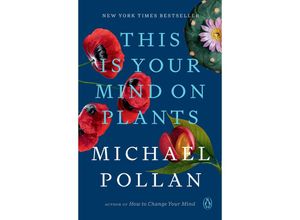The instant New York Times bestseller • A Washington Post Notable Book • One of NPR's Best
Books of the Year • Author of the highly anticipated forthcoming book A World Appears
“Expert storytelling . . . [Pollan] masterfully elevates a series of big questions about drugs
plants and humans that are likely to leave readers thinking in new ways.” — New York Times Book
Review From #1 New York Times bestselling author Michael Pollan a radical challenge to how
we think about drugs and an exploration into the powerful human attraction to psychoactive
plants—and the equally powerful taboos. Of all the things humans rely on plants for—sustenance
beauty medicine fragrance flavor fiber—surely the most curious is our use of them to change
consciousness: to stimulate or calm fiddle with or completely alter the qualities of our
mental experience. Take coffee and tea: People around the world rely on caffeine to sharpen
their minds. But we do not usually think of caffeine as a drug or our daily use as an
addiction because it is legal and socially acceptable. So then what is a “drug”? And why
for example is making tea from the leaves of a tea plant acceptable but making tea from a
seed head of an opium poppy a federal crime? In This Is Your Mind on Plants Michael Pollan
dives deep into three plant drugs—opium caffeine and mescaline—and throws the fundamental
strangeness and arbitrariness of our thinking about them into sharp relief. Exploring and
participating in the cultures that have grown up around these drugs while consuming (or in the
case of caffeine trying not to consume) them Pollan reckons with the powerful human
attraction to psychoactive plants. Why do we go to such great lengths to seek these shifts in
consciousness and then why do we fence that universal desire with laws and customs and fraught
feelings? In this unique blend of history science and memoir as well as participatory
journalism Pollan examines and experiences these plants from several very different angles and
contexts and shines a fresh light on a subject that is all too often treated reductively—as a
drug whether licit or illicit. But that is one of the least interesting things you can say
about these plants Pollan shows for when we take them into our bodies and let them change our
minds we are engaging with nature in one of the most profound ways we can. Based in part on an
essay published almost twenty-five years ago this groundbreaking and singular consideration of
psychoactive plants and our attraction to them through time holds up a mirror to our
fundamental human needs and aspirations the operations of our minds and our entanglement with
the natural world.

